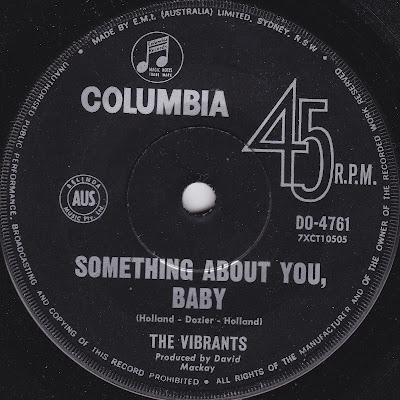Label: Phoenix
Year of Release: 1991
You've probably already guessed from the very fact that I wrote about Starbuck's "Do You Like Boys" not long ago, but overtly gay glam rock fascinates me. You have to put it into historical perspective. Until 1967, homosexual activity was illegal in the UK. Glam rock may have arrived in the middle of a new, forward thinking decade, with more folk looking to the future as Noddy Holder suggested, but it was still a mere few years away from some rather heavy-handed bigotry. There were still plenty of intolerant, prudish, vinegary "silent majority" types on the prowl who might have in some instances accepted the ban on homosexual activity being lifted, but almost certainly still didn't want to hear from the people who "did that sort of thing".
Which makes singles like "Do You Like Boys" and this one, "It Ain't Easy", truly astonishing. David Bowie putting his arms around Mick Ronson on "Top of the Pops" could have been interpreted in a number of ways and shrugged off as an innocent matey gesture. This single, on the other hand, is upfront and blatant, and frankly couldn't give a fig.
Telling the tale of a married rock star who is incapable of remaining faithful to his wife, and happily sleeps with both men and women depending on which mood he's in, it's very daring for 1971. Of course, it's impossible not to feel a little sorry for his wife, though one can only assume that she was forewarned. If not, the issue of this single may have acted as a highly inappropriate public announcement. "It ain't easy for my wife to live with me!" declares the stadium chant chorus, while the singer backs this up with "There's always some young girl or even boy in sight/ and I don't care it's what I take home at night".
My copy pictured above is a test pressing, but this was officially issued on the small Phoenix label, and obviously sold very few copies indeed. A shame, but hardly really surprising. It apparently enjoyed support from Annie Nightingale at the time, but it would stun me if I learned that it picked up any breakfast radio or "drivetime" play on Radio One. While it's no lost classic, there's plenty to enjoy here, and it cuts a daring dash from start to finish.
As for who the intriguingly named The Sad were, the marvellous 70s glam and powerpop blog "Purepop" comes to our rescue once again, and informs us that they were Giorgio Uccellini on vocals, Terry Brown on bass, Stuart Wilson on drums, and Marco Uccellini on lead guitar and vocals. An album was recorded but shelved due to Marco suffering a nervous breakdown, and the band seemed to have lost momentum thereafter. A shame, and it would be very interesting to hear what the album had to offer.














